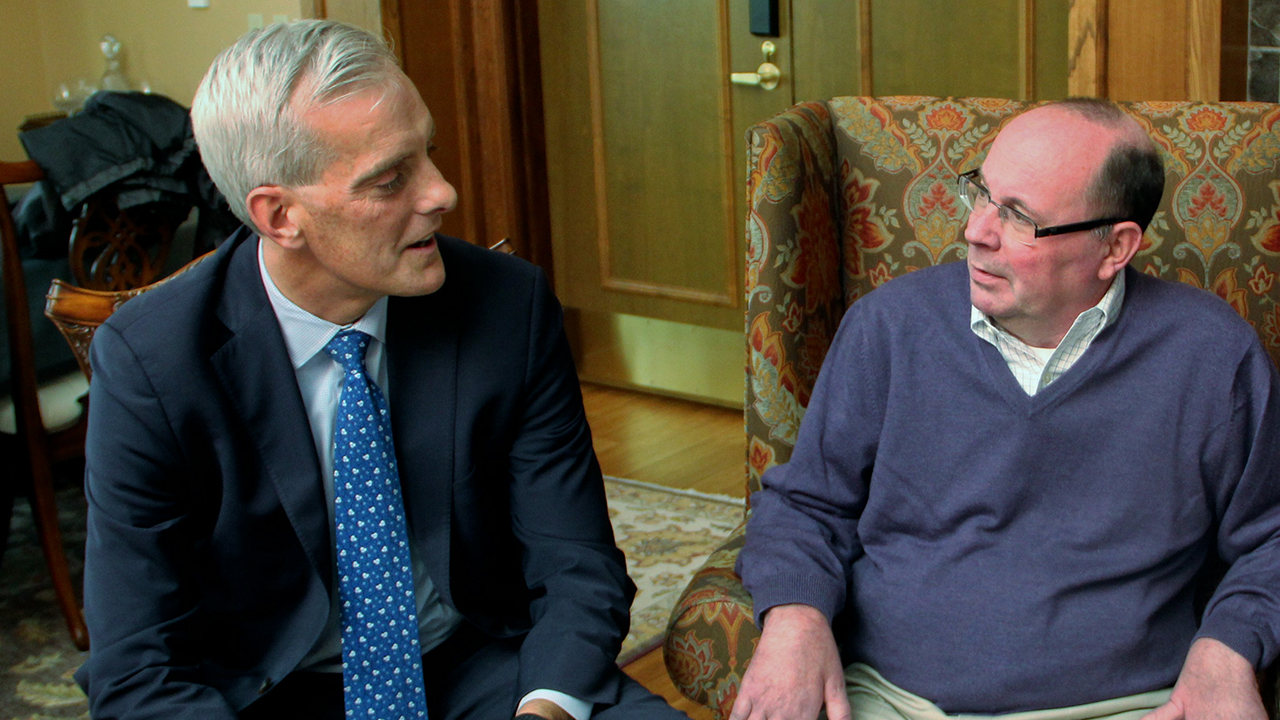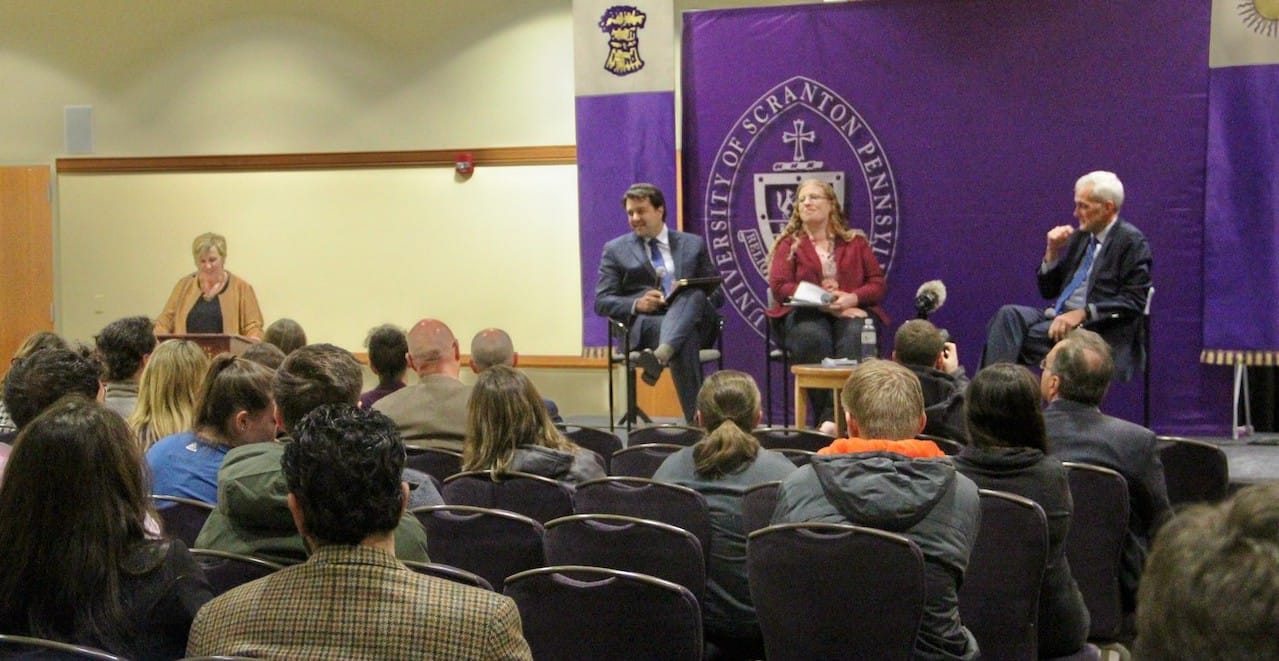Responsibilities of a College Education Discussed

The former chief of staff to President Obama reminded students of the value – and responsibility – that comes with a four-year college degree at the inaugural Humanities in Action Lecture.
Denis McDonough, senior principal at the Markle Foundation and chair of its Rework America Task Force, told the audience that – in the future – technology will be used for more and more tasks currently performed by humans, and only 34 percent of the U.S. workforce has a college degree.
“Machines are really good at certain things,” said McDonough, explaining that machines can do somethings better than humans but not everything. He went on to say that humans are good at discernment, judgment and complexity. “So, the first and most important thing that you can do for your own career opportunities, and also for the national interest, is to invest in the things that humans do really well. And, you know who has a long tradition of understanding what humans do really well … the Jesuits.”
He told the students in the audience that “perhaps the most Ignatian of all, is that you have the responsibility, outfitted and armed with the armor that this place gives you, to take care of this country, to take care of the world and to take care of the most vulnerable.”
McDonough, who served as White House chief of staff for President Barack Obama from February 2013 to January 2017, also reminded students that “the principal responsibility of an American citizen is to vote.” He said that only 23 percent of 18- to 24-year-olds voted in the 2016 election. “That’s a travesty. The first responsibility you have as citizens of this great democracy is to vote,” said McDonough.
The conversation with McDonough, titled “From the White House to the Work Force,” launched the University’s Humanities in Action Lecture Series, which is sponsored by the Gail and Francis Slattery Center for Humanities. At the event, University of Scranton philosophy professor and pre-law advisor Matthew Meyer, Ph.D., faculty director for the Slattery Center for the Humanities, and Scranton Times-Tribune education reporter Sarah Hofius Hall led a question and answer session with McDonough in the McIlhenny Ballroom of the DeNaples Center. Debra Pellegrino, Ed.D., dean of the University’s Panuska College of Professional Studies, and Gregory Jordan, executive director of the University’s Slattery Center for Humanities, also spoke at the event.
In May 2019, the University established the Gail and Francis Slattery Center for Humanities to advance the University’s liberal arts tradition and enhance the core role it plays in the formation of students to become “men and women for others.” The Center, named after the parents of benefactor and current University Trustee James M. Slattery ’86 and his wife, Betsy, will serve as a national model for humanities in action. Through the Center’s programs, elevated discourse on an array of topics and civic engagement will be encouraged by members of the University community, as well as by residents throughout the greater Scranton area.














